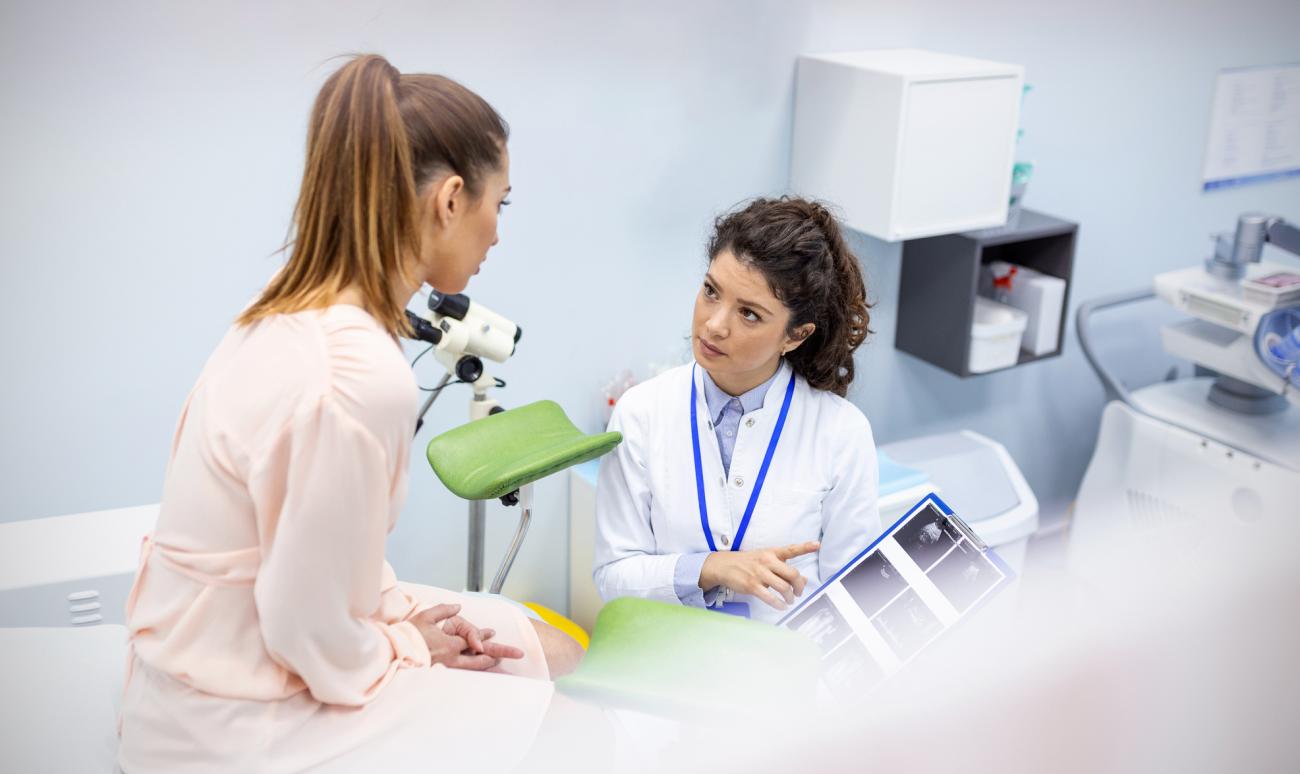
For this year’s Cervical Cancer Awareness Month, our expert shares information about cervical cancer prevention and the importance of screening.
In Canada, an estimated 1,550 people were diagnosed with cervical cancer in 2023. Around 200 new cases are recorded in British Columbia every year. Vancouver Coastal Health Research Institute researcher and gynecologic oncologist Dr. Janice Kwon explains the risk factors for developing cervical cancer and why screening for abnormal cells, even before symptoms develop, is crucial.
Q: What are some of the early symptoms of cervical cancer?
A: There are typically no warning signs of early stage cervical cancer, which is why screening is an important approach to catching pre-cancerous cells before the disease progresses to cancer. Even early stage cancer may not cause any symptoms. More advanced cervical cancer is often associated with abnormal vaginal bleeding or discharge, such as bleeding after intercourse or between cycles.
Only five per cent of pap smears return with abnormal results, most of which are not cancer. Only a very small percentage of these women will have pre-cancerous cells, which can be effectively treated to avoid cancer. On the other hand, most women who are diagnosed with advanced cervical cancer have never been screened, or have not been screened in over 10 years. This is why it is imperative to get regular pap tests, even if you are healthy and do not have any symptoms.
Q: What causes cervical cancer?
A: The primary cause of cervical cancer is the human papillomavirus (HPV). HPV is transmitted through skin-to-skin contact during sex. About 70 per cent of sexually active people in Canada are exposed to this virus at some point in their lifetime. However, only a small percentage of individuals will develop cervical cancer following infection.
The best protection against cervical cancer is the HPV vaccine, which produces antibodies against over 100 different types of HPV strains — some of which are also associated with oropharyngeal (head and neck) cancers, genital warts and anal and penile cancers.
Starting in grade six, students in B.C. can receive a free HPV vaccine through their school vaccination programs.
Q: What lifestyle changes can I make to reduce my risk of developing cervical cancer?
A: Stop smoking. Smoking is associated with a higher risk of cervical cancer because it weakens the immune system. People who live with immunocompromised conditions such as HIV, or who take immunosuppressant medications following an organ transplant may also be at greater risk of developing cervical cancer. When you are unable to clear the virus from your system, it can cause changes in the cells of the cervix and potentially transform into cancer.
Q: How often do I get a pap test?
A: The guidelines in B.C. recommend getting regular pap tests starting at the age of 25 years. Following a normal test result, a screening only needs to be repeated every three years. People at higher risk of developing cervical cancer, such as immunocompromised individuals, should have a pap smear every year.
The next iteration of guidelines will be moving to HPV testing as a primary screen for older individuals. In January 2024, we will be transitioning to HPV testing instead of pap smear screening for people over age 55. The reason for this is that HPV testing casts a broader net, so it is less likely that pre-cancerous cells will be missed.
Cervix self-screening is also being introduced as an alternative to the in-clinic pap test. These test kits enable a person to test themselves at home, making it more accessible to those who may not have a family doctor or who are reluctant to have an examination. This can also be a welcome alternative toward addressing lower rates of cervical cancer screening among marginalized populations.
Q: What does it mean if my test results are abnormal, and what are my treatment options?
A: While there are varying degrees of abnormality, a mildly abnormal pap result occurs when there are some abnormal cells present, but typically resolves on its own. However, a highly abnormal test result requires further investigation, such as a colposcopy – a specialized procedure in which a magnifying instrument called a colposcope is used to closely examine the cervix – to screen for any precancerous cells. A biopsy of the cervix is also often taken for confirmation purposes.
If pre-cancerous cells are detected, the recommended treatment is generally a minor procedure called a loop electro surgical excision procedure (LEEP), which is performed under local anesthetic in a clinic setting.
After treatment, there is a 10 per cent chance that the pre-cancer can return, and that additional treatment will be needed. Therefore, patients are usually scheduled to be followed up six months following the LEEP procedure. It is also recommended that patients receive the HPV vaccine if they haven’t already.



